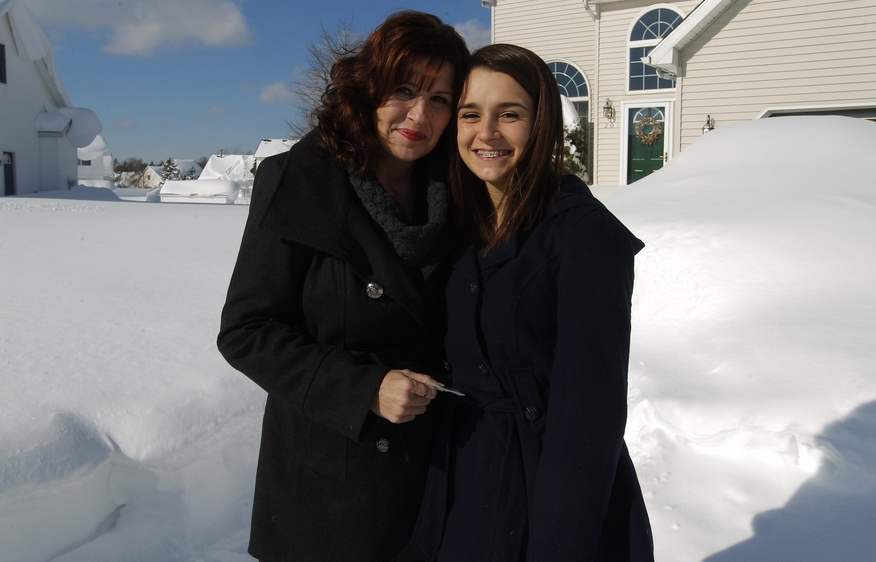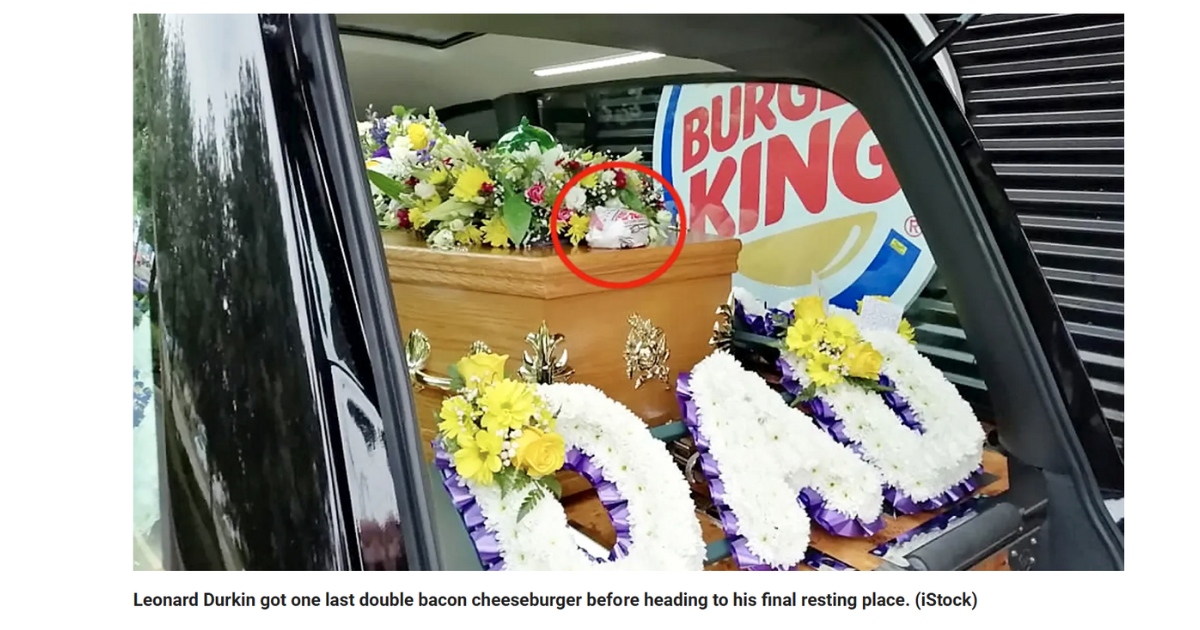Being Trapped in Snow ‘Felt like being buried in a casket’
Engulfed in snow, stranded motorist ‘felt like I was underground, buried in a casket’
At one point during her 13-hour ordeal, Karen Rossi got out a pen and paper and wrote farewell letters to her two daughters.
Her car became stuck in a snowbank at Transit Road and William Street in Lancaster, not far from home. A passing plow pushed her farther into the snowbank, and then the intense lake-effect storm completely buried the blue Chevy Cobalt.
Rossi couldn’t tell if it was day or night from inside the car.
“It felt like I was underground, buried in a casket,” she said. “It was surreal. It was just silent for hours. Nobody came. And my phone had died. I couldn’t charge it because I’d taken my daughter’s car to work.”
Rossi’s daughter had just cleaned the car, removing blankets, clothing and other items that might have come in handy.
As the hours went by, she became wet from trying to dig her way to daylight and her car was running out of fuel. As someone who had worked in an emergency room, she knew it didn’t look good.
Only a passing motorist prevented her from becoming yet another driver who died in a snow-buried car.
She credits him with saving her life.
Rossi had started out at 3 a.m. Tuesday from Mercy Hospital in South Buffalo, where she works as a pharmacy technician, for her home in Lancaster. Ordinarily, she would have left much earlier, but she put in an extra shift when the night technician couldn’t make it in.
“On a clear road, it takes me 20-plus minutes to get home,” she said, “but I didn’t get far before I started getting stuck. There always seemed to be someone behind me to push me out.”
At Transit and William, however, she had no such luck. In fact, her luck turned worse with the snowplow and more snow. She stayed in the car, and before her phone died, she called her daughter, who advised her to keep the car’s tailpipe clear of snow so she could run the engine to keep warm without poisoning herself with carbon monoxide.
“I kept watching the news, and it was freaking me out,” said Madelyn Rossi, 17. “I called my mother and told her she had to dig out the tailpipe so it doesn’t get clogged.”
Karen Rossi couldn’t open the car door.
“So I rolled the window down and used a sweatshirt to dig along the car to make a tunnel to keep the tailpipe clear,” she said. “Every hour and a half, I would go back. The tunnel would collapse, and I’d have to dig again.”
As her phone battery began to run out, she texted her daughter repeatedly, telling her, “My phone’s going to die. I love you.”
Eventually, Rossi decided she had to try to attract attention to her plight.
Once again, she climbed out through the car window. This time she dug upward with the sweatshirt and a snow brush.
“I finally got up to where I could see the sky,” she said. “I was standing on the window frame, but I couldn’t see out. I started waving the bright red snow brush. Little did I know, there was no one coming.”
She climbed back down into the front seat and waited.
“Sitting in the car, it’s funny what you think about,” she said. “You get punchy. You realize the magnitude of the situation. You never think this is the way you’re going to pass away. I started to think about my life and my family and my daughters.”
Rossi, who just turned 47, found a scrap of paper in her purse, tore it in half and started farewell notes to her daughters.
“I wrote letters to both of them,” she said.
Although she was wet, cold and exhausted, she continued to climb out the window, crawl her way up and wave the red snow brush out of the hole in the snowbank, hoping it would attract someone’s attention. Finally, it did.
“He saw me because I had decided to crawl out the window and started digging up and finally broke through with the red snow brush,” she said. “I waved that forever. My arm would get sore, and I would stop, and then start again.”
Then she heard a voice.
“I see you, I’m going to get you out,” a man’s voice yelled out. “I have a shovel.”
She realized she was going to make it.
“You get this shot of adrenalin,” she said.
The voice belonged to David Edwards, who was en route home from his job with the railroad.
“He climbed over everything. He dug me out,” she said. “He pulled me over the snowbank and put me in his truck. He had a big black monster truck thing with heated seats. He would never get stuck.
“I was disoriented and soaking wet and freezing cold. He stayed with me and he talked with me. I kept realizing he didn’t have to do any of this stuff, but he was just an amazing person. I’m so thankful that God sent him.”
Finding the street into Rossi’s housing development blocked with deep snow, Edwards drove her to his home in the Village of Lancaster, stopping to help motorists in distress along the way.
“He kept asking, ‘Do you mind if I help this one get out?’ ” she said. “He must have helped four other people.”
After getting Rossi dried and warmed at his house, Edwards tried again to take her home. The closest he could get was a friend’s house in a neighboring development, where a path had been opened. She stayed there overnight.
“Just having pajamas and warm, dry socks,” she said, “it felt like heaven.”
She eventually got home Wednesday afternoon, and later calculated that she was buried in snow from 3 a.m. Tuesday to 4 p.m. that afternoon.
“I’ll never think about things the same. I made so many promises to myself in the car. I’ll never sweat the small stuff again,” she said.
When the mother and daughter were reunited, both were overcome with emotion.
“We burst into tears and hugged each other,” Madelyn said.
And the farewell letters she wrote to her daughters?
“My kids don’t even want to see them,” Rossi said, because they don’t want to think about losing her.
But Rossi is keeping the two notes, thinking that some day her daughters may want to read what she once believed would be her last words.
Photo Credit: John Hickey/Buffalo News
[h/t Buffalo News]




